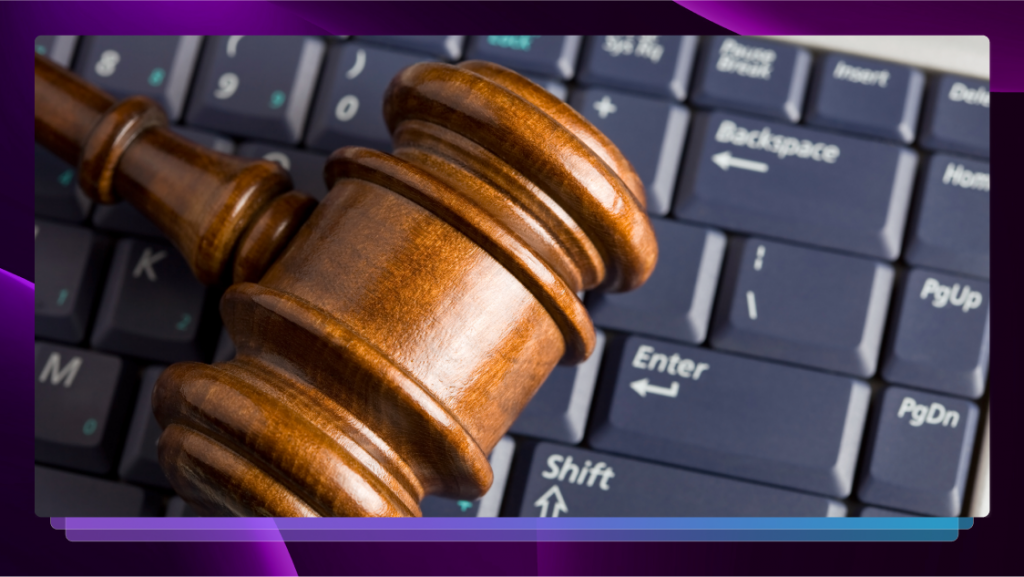The Significance of Lawful Video Depositions in Modern Legal Providers: What You Need to Know
Legal video clip depositions have ended up being necessary in today's legal landscape. They supply a multidimensional sight of witness testimonies that conventional records just can not match. By capturing both verbal and non-verbal interaction, these depositions enhance the general understanding of a witness's reputation. The efficiency of video clip depositions pivots on numerous elements, including conformity with lawful criteria and finest techniques. Checking out these aspects discloses their real significance in contemporary lawful services
What Are Lawful Video Depositions?
Lawful video depositions act as an important device in the litigation process. They entail tape-recording witness statements in a video clip format, capturing both verbal and non-verbal communication. This approach enables attorneys to record the disposition, expressions, and responses of witnesses, giving a richer context for the statement. Typically carried out in a controlled atmosphere, these depositions are led by lawyers who ask inquiries while a stenotype reporter documents the discussion. The resulting video clip can be vital for test prep work, as it enables attorneys to assess the integrity of witnesses and improve their strategies. In addition, lawful video clip depositions can be made use of in different lawful contexts, varying from civil disagreements to criminal situations. The visual and auditory aspects of video clip depositions boost the presentation of proof, making it a crucial part in the modern-day legal landscape. Generally, they contribute significantly to the efficiency and efficiency of legal proceedings.

Benefits of Video Depositions Over Conventional Techniques
Video depositions provide numerous benefits contrasted to standard approaches of taking witness statements. One substantial advantage is the ability to capture both audio and aesthetic aspects, providing a much more complete record of the witness's declarations. This dual format enhances clearness and permits lawyers to reference particular nuances during test prep work. Furthermore, video depositions facilitate remote engagement, making it simpler for witnesses that may be not available for in-person looks because of geographical restrictions or health issues.Moreover, video depositions can quicken the total deposition procedure, minimizing the time and prices linked with traveling and logistics. They additionally improve accessibility, as taped depositions can be quickly shared amongst lawful groups and referenced at any moment. This convenience contributes to far better case management and prep work. Generally, video depositions represent a contemporary, efficient approach to collecting witness testimonies, lining up with the advancing demands of the legal occupation.
The Duty of Body Movement and Tone in Testimonies

In lawful video clip depositions, body movement and tone play vital duties in conveying a witness's reputation and trustworthiness. Nonverbal cues can offer understandings right into a witness's psychological state, affecting just how their statement is viewed. Understanding the influence of these elements is essential for jurors and lawyers alike when examining the reliability of a testimony.
Nonverbal Interaction Insights
While spoken interaction is usually emphasized in lawful statements, nonverbal hints such as body language and tone play a crucial function in conveying credibility and feeling. Onlookers of depositions may note that a witness's position, motions, and faces can substantially influence perceptions of integrity. Constant eye call might indicate self-confidence, while avoiding look could suggest deceit or discomfort. Likewise, the intonation-- its volume, pitch, and pace-- can pass on sensations of sincerity or uncertainty. Legal experts should be in harmony with these nonverbal signals, as they often supply critical context that matches spoken words. Recognizing these subtleties can boost the effectiveness of depositions and influence the result of legal procedures.
Emotional Tone Influence
The psychological tone conveyed throughout lawful testaments significantly influences just how a witness is perceived. Body language, vocal inflections, and faces play crucial duties in forming the narrative of a testimony. A witness exhibiting self-confidence through steady eye call and a tranquil tone can infuse a sense of dependability and interaction. Alternatively, indicators of anxiousness, such as fidgeting or an unsteady voice, may cause skepticism concerning their account. The subtleties of psychological expression can affect the interpretation of realities, making it necessary for lawyers to acknowledge these cues. In video clip depositions, the acoustic and visual elements integrate, stressing the value of emotional tone in conveying sincerity and truthfulness within the lawful process.
Integrity and Credibility
An essential consider establishing integrity and credibility throughout testimonies hinges on the witness's body movement and intonation. Viewers usually count on non-verbal signs-- such as eye call, posture, and gestures-- to assess a witness's sincerity. A witness who keeps eye call and displays open body language may be regarded as more reputable and straightforward than one that avoids eye contact or shows up shut off. Furthermore, tone of voice plays a vital go to the website role; a steady, tranquil tone can strengthen the reliability of the statement, while fluctuations in pitch or volume may raise doubts. Ultimately, the mix of body language and singing tone significantly influences how a witness's statements are received and interpreted in a lawful context.
Finest Practices for Conducting Video Clip Depositions
Conducting video clip depositions calls for careful preparation and implementation to assure a efficient and clear discussion of testimony. First, it is essential to choose a quiet, well-lit place to lessen disturbances and protected optimal video quality. The tools must be tested in development, including video cameras, microphones, and lights, to prevent technical problems throughout the deposition.Next, parties entailed need to examine the layout and procedures ahead of time, making sure that everybody comprehends their roles. The deponent must be informed on the process, consisting of exactly how to react clearly and concisely.Additionally, preserving a specialist temperament throughout the session is crucial. This includes avoiding talking over one another and confirming that all inquiries are guided properly. It is essential to record the deposition in a style that allows for easy playback and review, preserving the integrity of the testimony for future use.
Legal Considerations and Compliance Issues
Just how do legal factors to consider and compliance problems influence the effectiveness of video depositions? Legal experts should navigate an intricate landscape of guidelines, making sure that video clip depositions stick to administrative guidelines and criteria. Conformity with laws concerning personal privacy, approval, and videotaping techniques is important. For circumstances, obtaining explicit permission from all celebrations entailed is essential to avoid legal repercussions.Additionally, the admissibility of video clip proof in court can rest on compliance with procedural demands. Guaranteeing that the tools utilized satisfies technical criteria is also vital, as low quality can weaken the deposition's reliability.Moreover, lawyers need to know any certain state legislations that control video clip depositions, as these can vary considerably. Failing to address these factors to consider can not just jeopardize the integrity of the deposition yet additionally influence the total situation technique, inevitably affecting the client's lawful results.
Just How Video Depositions Influence Court Assumption
While video depositions can act as effective devices in legal process, their influence on court assumption is substantial. The visual and acoustic components of video recordings provide jurors with an extra extensive understanding of witness disposition, trustworthiness, and emotional responses. This multimedia technique can improve the jurors' ability to examine the reliability of testimony contrasted to typical text-based transcripts.Moreover, video clip depositions allow jurors to observe body movement, tone of voice, and face expressions, every one of which can affect their interpretation of the witness's declarations. The presence of a witness on display can humanize them, cultivating empathy and link, which might persuade jurors' point of views. On the other hand, a witness that appears untrustworthy or evasive on video may lead to unfavorable perceptions that influence a jury's choice. Ultimately, the dynamic nature of video depositions plays a crucial role fit how jurors analyze proof and reach their verdicts.
The Future of Video Clip Depositions in Legal Practice
As advancements in technology proceed to reshape the legal landscape, the future of video depositions is poised for significant advancement. Advancements such as synthetic intelligence, digital fact, and enhanced video clip conferencing tools are expected to enhance the deposition process and boost accessibility. Lawyers may make use of AI-driven analytics to assess witness credibility and instance strength a lot more effectively.Moreover, the assimilation of digital truth could allow juries to experience immersive simulations of depositions, offering much deeper context and understanding. Furthermore, the pattern towards remote depositions is most likely to persist, using higher adaptability for attorneys and clients alike.As remote work comes to go to this site be progressively normalized, video depositions will likely end up being common method, minimizing prices and time restrictions associated with standard techniques. On the whole, these technological innovations assure to improve the performance, efficiency, and accessibility of video clip depositions in legal practice, eventually transforming exactly how lawful specialists get ready for test.
Often Asked Inquiries
Just How Much Do Lawful Video Depositions Normally Price?

Can Video Clip Depositions Be Used in Any Type Of Sort Of Case?
Video depositions can be utilized in different kinds of cases, including civil, criminal, and family regulation. Their flexibility enables lawyers to existing witness statements successfully, adjusting to the particular demands of various legal scenarios.
What Equipment Is Required for a Video Deposition?
To carry out a video deposition, necessary equipment consists of a premium video camera, microphone, lights, and a reputable recording tool. Additionally, a computer with editing and enhancing software application may be required for post-production and formatting the last video clip.
For how long Does a Common Video Deposition Last?
A common video deposition lasts between 2 to four hours, depending on the intricacy of the instance and the number of questions positioned. Extended sessions might take place, however breaks are usually included for participant comfort.

Are Video Depositions Admissible in Court?
Video depositions are usually acceptable in court, given they stick to lawful criteria and regulations of evidence. Their usage enhances clearness and preserves witness statement, helping in the judicial procedure during hearings and trials. Lawful video clip depositions have ended up being crucial in today's legal landscape. Additionally, legal video clip depositions can be used in numerous legal contexts, ranging from civil disputes to criminal instances. In addition, video clip depositions promote remote participation, making it much easier for witnesses who may be unavailable for in-person appearances due to geographical restrictions or wellness issues.Moreover, video depositions can speed up the general deposition procedure, lowering the time and expenses connected with traveling and logistics. Making sure that the devices utilized fulfills technical criteria is additionally important, as inadequate high quality can weaken the deposition's reliability.Moreover, attorneys have to be aware of any type of details state regulations that control video clip depositions, as these can vary greatly. Furthermore, the fad towards remote depositions is most likely to linger, offering greater versatility for attorneys and customers alike.As remote job comes Visit Your URL to be significantly stabilized, video clip depositions will likely become basic practice, reducing prices and time restrictions linked with traditional approaches.